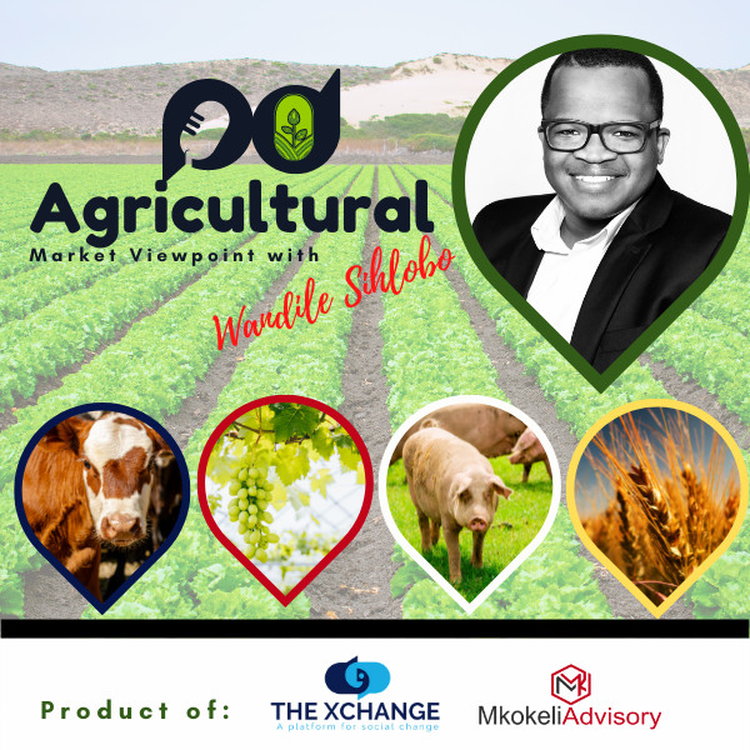
Some observations as we approach South Africa's 2023/24 summer crop season
Loading player...
As South Africa's 2022/23 summer cop season draws to a close, the focus is shifting towards the 2023/24 production season, which commences in October. As we stated in our previous notes, the preliminary insights suggest that an El Niño could bring below-normal rainfall, but South Africa could still have a decent season. The improved soil moisture following four consecutive seasons of rain will help support crop and horticulture production as well as grazing conditions.
Although there is no evidence of its occurrence in South Africa this coming summer, one factor that concerns us is the possibility of extreme heat. Various countries in Europe and regions of the US have experienced extreme heat this summer, which has proved challenging for agriculture at certain times. When the 2023/24 summer crop season starts in South Africa, monitoring temperatures and the impact on crops after that will be necessary.
The weather outlook is a downside risk to production for the upcoming summer crop season, although not severe for the reasons we have outlined above -- improved soil moisture following four consecutive seasons of rain.
Notably, we are not the only ones holding this optimistic view. In the past few weeks, the International Grains Council (IGC) forecasted South Africa's 2023/24 maize production at 15,6 million tonnes, down marginally from the current crop of 16,4 million tonnes.
Moreover, the United States Department of Agriculture's Pretoria office recently released their forecast placing South Africa's 2023/24 maize production forecast at 15,8 million tonnes, marginally above the IGC's figures. These institutions have assumed a mild El Niño, and soil moisture is currently good. Still, while we are optimistic about the upcoming season, we doubt the crop could be this large and see 13-14 million tonnes as more likely.
Beyond the weather outlook, the farmers are also ready as they continue to receive high volumes of tractors ordered in the past few months on the back of incomes of the favourable seasons. For example, in the first six months of this year, South Africa's tractors sales amounted to 4 061 units, down marginally by 2% from the corresponding period in 2022. Given that the past few years saw solid sales, one wouldn't have assumed to continue seeing numbers like this in 2023. Admittedly, these orders were made in the past few months when farmers were still enjoying the gains of the past few seasons' ample harvests combined with higher prices, thus improving farm profitability. But they also signal farmers' confidence about the sector's outlook beyond the El Niño worries.
Also worth noting is that farmers will be on the fields with much better input costs this year than in the past season. For example, most agrochemicals prices are down by roughly 15% year-on-year. In addition, fertilizer prices are down by about 50% compared to 2022. This softening of input costs makes production conditions far better for farmers if we consider that fertilizer accounts for a third of grain farmers' input costs, and other agrochemicals account for roughly 13%.
We discuss more in this week's podcast segment.
My writing on agricultural economic matters is available on my blog: https://wandilesihlobo.com/
Podcast production by: Lwandiso Gwarubana, Richard Humphries, and Sam Mkokeli
Although there is no evidence of its occurrence in South Africa this coming summer, one factor that concerns us is the possibility of extreme heat. Various countries in Europe and regions of the US have experienced extreme heat this summer, which has proved challenging for agriculture at certain times. When the 2023/24 summer crop season starts in South Africa, monitoring temperatures and the impact on crops after that will be necessary.
The weather outlook is a downside risk to production for the upcoming summer crop season, although not severe for the reasons we have outlined above -- improved soil moisture following four consecutive seasons of rain.
Notably, we are not the only ones holding this optimistic view. In the past few weeks, the International Grains Council (IGC) forecasted South Africa's 2023/24 maize production at 15,6 million tonnes, down marginally from the current crop of 16,4 million tonnes.
Moreover, the United States Department of Agriculture's Pretoria office recently released their forecast placing South Africa's 2023/24 maize production forecast at 15,8 million tonnes, marginally above the IGC's figures. These institutions have assumed a mild El Niño, and soil moisture is currently good. Still, while we are optimistic about the upcoming season, we doubt the crop could be this large and see 13-14 million tonnes as more likely.
Beyond the weather outlook, the farmers are also ready as they continue to receive high volumes of tractors ordered in the past few months on the back of incomes of the favourable seasons. For example, in the first six months of this year, South Africa's tractors sales amounted to 4 061 units, down marginally by 2% from the corresponding period in 2022. Given that the past few years saw solid sales, one wouldn't have assumed to continue seeing numbers like this in 2023. Admittedly, these orders were made in the past few months when farmers were still enjoying the gains of the past few seasons' ample harvests combined with higher prices, thus improving farm profitability. But they also signal farmers' confidence about the sector's outlook beyond the El Niño worries.
Also worth noting is that farmers will be on the fields with much better input costs this year than in the past season. For example, most agrochemicals prices are down by roughly 15% year-on-year. In addition, fertilizer prices are down by about 50% compared to 2022. This softening of input costs makes production conditions far better for farmers if we consider that fertilizer accounts for a third of grain farmers' input costs, and other agrochemicals account for roughly 13%.
We discuss more in this week's podcast segment.
My writing on agricultural economic matters is available on my blog: https://wandilesihlobo.com/
Podcast production by: Lwandiso Gwarubana, Richard Humphries, and Sam Mkokeli

